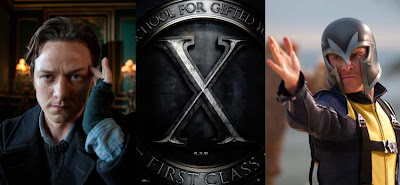What is considered the summer movie season kicked off with the release of Fast Five as April took its final breaths. Since then, ten new-release-weekends including Memorial Day and July 4th have come and gone and Hollywood has done its darndest to battle, scrape, and violently separate us from our precious (if not often frivolously spent) movie-goer dollar. They’ve used every tried and true trick in the Bruckheimer playbook. And since summer is not the ideal time for experimenting, a basic formula is employed to make sure all bets are hedged. Go with what you know and combine as many proven elements as possible. Do whatever it takes to guarantee that your studio’s summer slate gets a nice chunk of the billion-dollar pie when the masses flee into theatres to escape the summer swelter.
It is easy enough to imagine the meeting. Men and women with shiny hair, soft clothes, and comfortable shoes gather in a conference room. A big blank whiteboard is set up to be eventually filled with concepts for movies that MUST produce during the most profitable stretch of the year. By the end of the meeting, the following words are scribbled on the board: 3-D, Sequels, Superheroes, Stars, Kids.
And that’s about all one needs to satisfy a studio head. That’s why the development teams are paid the big bucks. The follow-up questions then for these crack brains (interpret as you like) are: 1.) Do we go for the quality 3-D (a la Avatar) or the inconsequential bargain basement (a la almost every other 3-D movie since)? 2.) Which one of our existing franchises is ripe (or, rather, least stale) to be squeezed for another “original” story? 3.) Which DC or Marvel (or maybe even some indie underground outfit) hero still remains on the well-plundered shelf to be promoted as the next big thing? 4.) Is there still such thing as a box-office star, and, if so, is it worth paying and banking on one to deliver?, and 5.) Which popular children’s character should we “bring to life” or introduce in their “first big screen adventure?”
And as Fast Five (1 and 2) gave way to Thor (3) and Kung Fu Panda 2 (1, 2, 4, and 5) – with the exceptional Bridesmaids crashing the party (though it was really only a Hangover 2 (2) for women) – which then preempted such disappointments as Pirates of the Caribbean: On Stranger Tides (1,2, and 3), Green Lantern (1 and 3), Mr. Popper’s Penguins (4 and 5), and Transformers 3: Rise of the Fallen (1,2, and 3), the summer has played out as expected, with audiences being predictably satisfied with the Motel 6 breakfast buffet and the studios mostly satisfied (and sometimes pleasantly surprised) by audience predictability.
Ten weeks into this annual, awkward mating ritual, there has been one clear winner. A movie that was released in 3-D, extended a franchise (but went the prequel route), and harvested the fruits of an ever-blooming superhero tree. And no, this movie did not make the most money (I’m a movie reviewer, not an economist), though it fairly earned its dripping, copious slice of pie. It is the winner because it clearly cared to win, and not simply maintain a safe, lowest-common-denominator approach to summer filmmaking. As we come up on mid-July and every studio has been aggressively firing its biggest, brightest bullets since late April, it has been X-Men: First Class, released in early May and certainly not the showiest of the bunch, which set the standard for air-conditioned, popcorn entertainment done right.
 The X-Men film adaptations have been around a while (actually beginning in 2000, one year senior to The Fast and The Furious). What started off with a rather mundane initial effort directed by Bryan Singer (who now produces), picked up in tone and tempo with its sequels, and then sputtered with a Wolverine back-story spinoff (though it was a good idea to try). X-Men: First Class just as wisely goes back to the beginning. The early 60’s to be exact and we find a young Charles Xavier (pre-Professor X) and a young Erik Lehnsherr (pre-Magneto) choosing their paths, constructing their psyches, and assembling their band of outcasts (some would say special mutants, others, dangerous freaks). And that subjective reality and perspective has always been the lynchpin of X-Men movies. Although the franchise has surely embraced its superhero soul and provided spectacular battle sequences and high-flying visual marvels, the humanity (or lack thereof) and the prejudices of its characters and against them has always managed to raise and embolden the material. The audience is truly challenged by the struggles of its protagonists and antagonists, and is forced to wonder who is right and why. X-Men: First Class surely reiterates the same theme, but with a new and interesting origin-story to tell and an evocative time period, the similar underlying material feels refreshing.
The X-Men film adaptations have been around a while (actually beginning in 2000, one year senior to The Fast and The Furious). What started off with a rather mundane initial effort directed by Bryan Singer (who now produces), picked up in tone and tempo with its sequels, and then sputtered with a Wolverine back-story spinoff (though it was a good idea to try). X-Men: First Class just as wisely goes back to the beginning. The early 60’s to be exact and we find a young Charles Xavier (pre-Professor X) and a young Erik Lehnsherr (pre-Magneto) choosing their paths, constructing their psyches, and assembling their band of outcasts (some would say special mutants, others, dangerous freaks). And that subjective reality and perspective has always been the lynchpin of X-Men movies. Although the franchise has surely embraced its superhero soul and provided spectacular battle sequences and high-flying visual marvels, the humanity (or lack thereof) and the prejudices of its characters and against them has always managed to raise and embolden the material. The audience is truly challenged by the struggles of its protagonists and antagonists, and is forced to wonder who is right and why. X-Men: First Class surely reiterates the same theme, but with a new and interesting origin-story to tell and an evocative time period, the similar underlying material feels refreshing.
This is why honest-to-God actors like James McAvoy and Michael Fassbender (and Patrick Steward and Ian McKellen before/after them) excel and can do miracles with their roles. This is not Ryan Reynolds trying to be a cool, funny Green Lantern or Chris Hemsworth trying to mimic a brawny, brooding Thor. Xavier and Magneto are layered, highly conflicted, emotionally resonant characters with tremendous demons and burdens. In Matthew (Kick Ass) Vaughn’s pitch-perfect, fluid, sparklingly edited movie, we learn all about those demons. And wouldn’t you know it? It’s all about Jewish revenge.
The film begins, actually, by replaying a very powerful scene that opened the first film of the X-Men series, with the child Erik being torn from his parents in the ghettos of Europe during World War II, a yellow star stitched to his coat, a number tattooed to his arm. As he is dragged away, his fear and rage take over, and the iron gates, which have closed behind his screaming parents, begin to warp, and bend, and finally curl and snap like straw.
In a very welcome reimagining of the Marvel universe, writers Ashley Miller, Zack Stentz, Jane Goldman, and Vaughn, place the villain Sebastian Shaw (always effective and creepy, Kevin Bacon) in a Nazi uniform and insert him as the driving force and manipulator of Erik’s evolution into the sinister Magneto. Ironically enough, Fassbender, who starred previously in Inglourious Basterds, winds up playing in the two greatest Jewish/Holocaust vengeance movies of the past two decades.
 In addition to the intense energy emanating from the collision of Shaw, Xavier, and Lehnsherr, and their varying ideals, we are also provided with an engaging introduction to the blue shape-shifter, Mystique (vulnerable, beautiful Oscar nominee Jennifer Lawrence), as well a crew of rookie heroes and villains (Beast, Havok, and Banshee to name a few) learning to spread their wings and fly.
In addition to the intense energy emanating from the collision of Shaw, Xavier, and Lehnsherr, and their varying ideals, we are also provided with an engaging introduction to the blue shape-shifter, Mystique (vulnerable, beautiful Oscar nominee Jennifer Lawrence), as well a crew of rookie heroes and villains (Beast, Havok, and Banshee to name a few) learning to spread their wings and fly.
I’m not sure if X-Men: First Class is a one-shot deal or the beginning of a new chapter, but I would be pleased either way. In a sense I would like to revisit this drama, but at the same time would not want its purity marred. Perfect summer movies, as we have learned from experience, are not as easy to manufacture as one would think. And ten weeks into the season, X-Men: First Class still reigns supreme. That is, until tomorrow, when a spell is cast upon us all with the release of the Harry Potter finale (1, 2, and 5).









